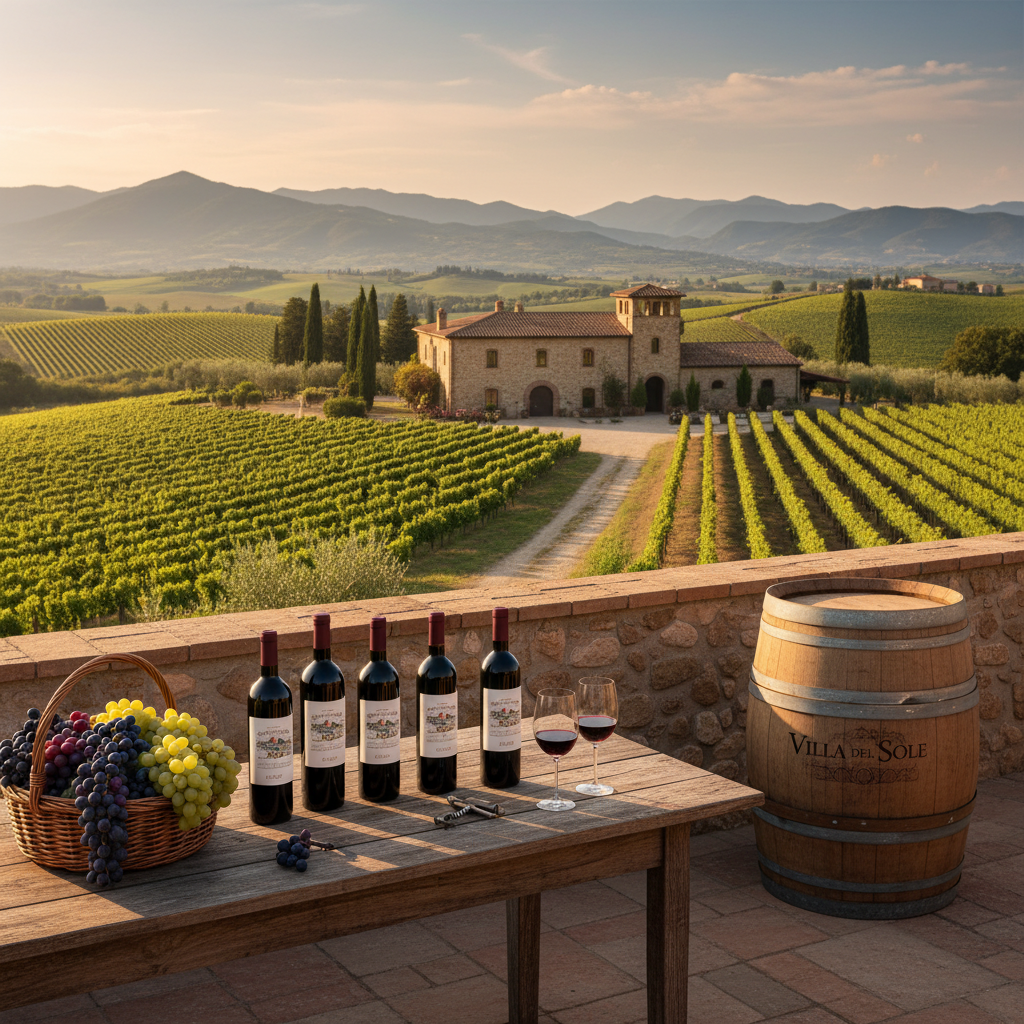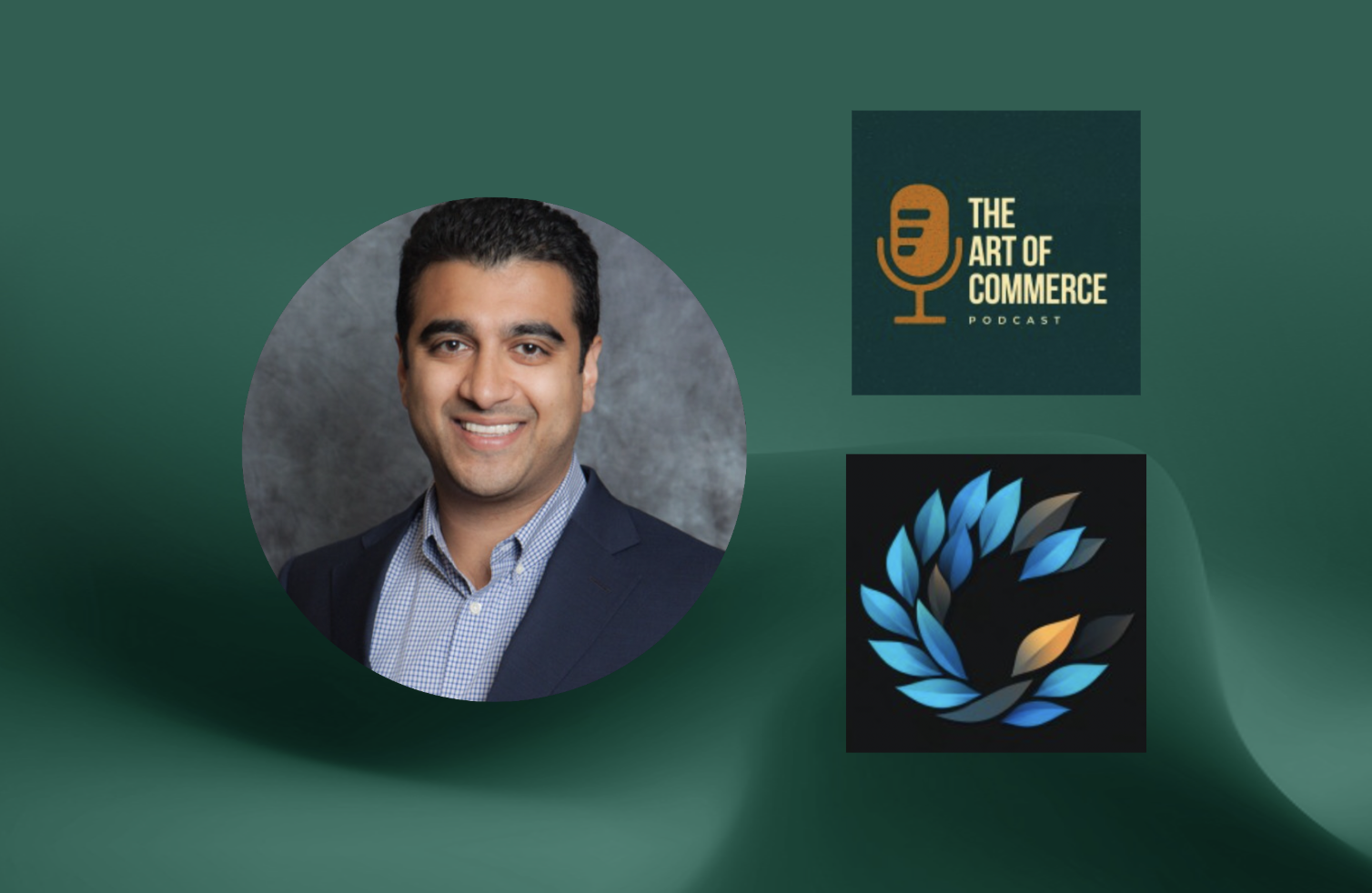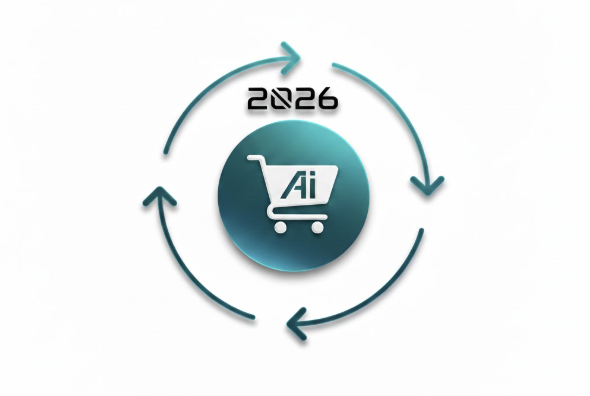How Agentic Commerce is Helping Wine Brands Improve SEO/GEO Strategy

Key Takeaways
- AI shopping agents drive 4,700% year-over-year traffic increases to retail sites, with users spending 32% more time and exhibiting 27% lower bounce rates than traditional visitors
- Conversational queries containing 10+ words produce AI-generated summaries at significantly higher rates, requiring wine brands to restructure content for intent-rich, natural language searches
- Product data feeds have become the primary discovery mechanism for agentic commerce, with data older than 60 minutes creating critical checkout completion risks
- 71% anticipate using AI assistants for shopping by end of 2025, with wine purchasing decisions increasingly delegated to autonomous agents
- Global online wine sales market projected to reach $40.24 billion by 2032, growing at 8.20% CAGR as mobile commerce and AI-powered recommendations accelerate adoption
- Brand safety protocols prevent compliance violations while maintaining conversion performance, with zero compliance violations achieved through proper AI guardrails
The wine industry faces a fundamental transformation in how consumers find and purchase wine online. Traditional search engine optimization, built around keyword targeting and link building, no longer suffices as AI shopping agents become the primary interface between wine buyers and brands. More than half of consumers now expect to use AI assistants for shopping decisions, and traffic from generative AI platforms has surged 4,700% year-over-year. Wine brands that master both traditional SEO and emerging Generative Engine Optimization (GEO) will capture this shift, while those that delay risk permanent invisibility as AI agents make purchasing recommendations without ever visiting traditional websites.
What Is Agentic Commerce and Why Wine Brands Are Adopting It
Agentic commerce represents autonomous AI agents acting as decision-makers that evaluate products, compare prices, and complete transactions without direct human intervention. Unlike traditional ecommerce where consumers actively search and deliberate, AI agents now operate as autonomous shoppers making algorithmic decisions based on programmed preferences and learned behavior patterns.
For wine retailers, this shift carries particular weight because wine purchasing historically involved substantial research, personal recommendations, and careful evaluation of varietal, region, vintage, and tasting notes. The adoption pattern demonstrates how quickly consumer behavior is changing:
AI Shopping Adoption Metrics:
- 71% of consumers want AI assistants integrated into shopping
- 32% more time spent on retail websites by users arriving through AI agents
- 10% more pages browsed per session compared to traditional search visitors
- 27% lower bounce rate demonstrating higher engagement and purchase intent
Wine businesses face both disruption and opportunity. Direct-to-consumer relationships, wine club memberships, and brand loyalty programs all face challenges when AI agents make decisions based on algorithmic evaluation rather than emotional brand connection. However, wine brands that position themselves as trusted information sources will gain preferential citation and recommendation from AI platforms.
How AI Agents Differ from Traditional Chatbots
Traditional chatbots respond to specific queries with scripted answers, while AI agents understand context, learn from interactions, and make autonomous decisions. Wine-focused AI agents interpret complex preferences like "natural wines with low sulfites for seafood pairing" and synthesize recommendations from multiple data sources including product catalogs, reviews, and customer behavior patterns.
The infrastructure enabling this transformation includes emerging payment tooling designed for AI agents. Stripe's AgentKit provides frameworks for AI agents to interact with payment systems, enabling features like in-chat checkout where wine shoppers can complete purchases directly within conversational interfaces without leaving the chat window.
SEO Fundamentals: Understanding How Search Engines Rank Wine Brands
While GEO represents the emerging frontier, traditional SEO remains foundational because generative AI platforms rely on strong SEO signals as baseline credibility indicators. Wine businesses cannot abandon SEO best practices; instead, they must view SEO and GEO as complementary approaches maximizing visibility across both traditional and conversational AI platforms.
The Three Pillars of SEO for Wine Ecommerce:
- Technical Accessibility: Search engines and AI crawlers must access, crawl, and index wine content. Essential files like robots.txt and meta-robots tags must allow known AI crawlers such as GPTBot and CCBot to index relevant sections.
- Content Relevance: Wine product pages need specific, factual information rather than vague marketing language. Instead of "complex structure with great depth," AI systems prefer "medium-bodied Pinot Noir with bright acidity (pH 3.4), notes of cherry and earth, 13.2% alcohol, aged 10 months in neutral French oak."
- Authority Signals: Winemaker credentials, team experience, and relevant expertise help AI systems build authority profiles. References to respected wine organizations and digital PR placements on external authoritative wine sites strengthen credibility signals.
Common SEO Mistakes Wine Brands Make
Wine retailers frequently treat all bottles of the same wine as identical products, failing to differentiate vintage years in product schema. This creates confusion for both search engines and AI agents attempting to recommend specific wines. Additionally, many wine sites lack structured data implementation for Product, Offer, and AggregateRating schemas, limiting visibility in AI-driven search results.
How Agentic Commerce Generates SEO-Friendly Content at Scale
Product data feeds have become more important than website optimization for agentic commerce because AI platforms rely heavily on structured feeds as the primary information source. Unlike traditional websites where search engines crawl pages, agentic commerce platforms consume product data directly, making feed quality the determining factor in wine visibility.
Data Feed Optimization Requirements:
- Identity and Attribute Richness: All active wine SKUs must have confirmed brand identification and unique identifiers (GTIN/UPC where applicable)
- Near Real-Time Updates: Price and availability data older than 60 minutes for fast-moving SKUs creates critical checkout completion risks
- Conversational Attributes: Enriched descriptions including use cases ("ideal for romantic dinners"), production methods ("biodynamic," "sustainably farmed"), and flavor characteristics
- Structured Product Information: "2022 Estate Cabernet Sauvignon – Napa Valley AVA – 18 months French oak aging – 14.5% ABV – $65" format that AI systems prefer
The Envive Copywriter Agent addresses this challenge by crafting personalized product descriptions for every customer while maintaining SEO-optimized content structure across wine catalogs. This automated approach ensures that each vintage, varietal, and producer receives unique, detailed descriptions that AI systems can interpret and cite.
Leveraging AI Agents to Improve On-Site Search and Engagement Metrics
Search engines measure user engagement through behavioral signals including bounce rate, time on site, and page depth. Wine brands implementing AI-powered search agents see dramatic improvements in these metrics, which then feed back into higher search rankings.
Engagement Metric Improvements from AI Search:
- Zero-Result Search Elimination: Traditional keyword search returns no results for approximately 15-20% of wine queries; AI agents understand intent and never hit dead ends
- Session Duration Increase: Users arriving through AI platforms spend 32% more time browsing compared to traditional visitors
- Lower Bounce Rates: 27% reduction in immediate exits signals higher content relevance to search engines
- Deeper Page Exploration: 10% more pages viewed per session creates stronger authority signals
The Envive Search Agent understands intent and transforms product search into a conversational experience that delivers smart, relevant results every time. By continuously learning from customer queries and retailer data, it builds precision at the top of the funnel where wine consumers begin their purchasing journey.
Turning Failed Searches into Conversion Opportunities
Traditional search systems treat "no results" as a dead end. AI-powered search interprets intent behind misspelled varietals, regional synonyms, and unconventional descriptions, suggesting alternatives that match customer needs. This capability directly impacts conversion metrics that search engines monitor when evaluating site quality and relevance.
Building Brand Strategy Through Conversational Commerce Data
Agentic commerce platforms capture zero-party data through natural conversations, providing insights into customer intent that traditional analytics miss. When wine consumers ask AI agents about pairing recommendations, occasion-specific wines, or gift selections, they provide explicit preference signals that inform brand positioning and messaging strategies.
Zero-Party Data Collection Advantages:
- Customer Intent Signals: Direct expression of preferences, occasions, and price sensitivity without inference
- Preference Mapping: Understanding which wine characteristics matter most to different customer segments
- Brand Positioning Insights: Identifying competitive differentiation opportunities through question patterns
- Messaging Optimization: Refining value propositions based on what customers actually ask about
The Envive Sales Agent listens, learns, and remembers to deliver highly personalized shopping journeys while capturing this valuable zero-party data. Unlike passive analytics that track clicks and page views, conversational AI captures explicit intent through natural language interactions.
Using Conversation Data to Refine Brand Messaging
Wine brands analyzing conversational AI data identify patterns in how customers describe wine preferences, what questions they ask before purchasing, and which product attributes drive decision-making. This insight enables more targeted SEO content addressing actual customer language rather than assumed keyword targets.
Optimizing for Generative Engine Optimization (GEO) in Wine Ecommerce
Generative Engine Optimization extends beyond traditional SEO by addressing how large language models and AI platforms synthesize information into recommendations. Conversational queries containing 10+ words produce AI-generated summaries at significantly higher rates than shorter keyword searches, requiring wine brands to restructure content accordingly.
GEO Content Requirements:
- FAQ-Format Content: Address questions in natural language ("What does 'natural wine' mean?" "How should I store opened wine?")
- Specific, Quotable Facts: AI systems value precise statements over marketing language
- Entity Optimization: Consistent use of wine terminology, AVA designations, and varietal descriptions helps AI understand relationships
- Natural Language Variations: Use synonyms and related terms rather than keyword repetition
Modern wine consumers ask conversational questions like "Which Napa Valley wineries offer private tastings for groups of 8 with food pairings on weekends?" rather than searching "Napa Valley winery tastings." Wine websites must address these complex, intent-rich queries with specific, structured answers that AI systems can extract and cite.
How GEO Differs from Traditional SEO
Traditional SEO optimizes for ranking position in search results; GEO optimizes for citation within AI-generated responses. Wine brands need content that AI systems consider authoritative, easy to cite, and self-contained in answering specific questions. This requires transparency about data freshness, collection methodologies, and sourcing—elements that build credibility in AI evaluation frameworks.
Technical SEO Considerations for Implementing Agentic Commerce
Wine businesses implementing AI agents must ensure technical accessibility without harming existing SEO performance. Controlling AI crawlers should be done using robots.txt directives and specific opt-outs for documented AI crawlers like GPTBot and Google-Extended.
Technical Implementation Checklist:
- Crawlability Preservation: Ensure AI agents don't rely on JavaScript rendering that search engines can't interpret
- Structured Data Validation: Product, Offer, and AggregateRating schemas must be accurate and non-duplicated
- Mobile Responsiveness: About 60% of traffic arrives on mobile devices requiring seamless cross-device experiences
- Core Web Vitals: Page speed and user experience metrics that search engines prioritize
- Schema Markup for Wine Products: Vintage year, producer, appellation, and alcohol content must be machine-readable
Local search elements become particularly important for wineries with physical tasting rooms. Optimizing Google Business Profiles with accurate information, engaging photos, and regular updates ensures visibility in location-based conversational queries like "wine tasting rooms near Healdsburg."
Compliance and Brand Safety in AI-Powered Wine Commerce
Alcohol commerce operates under strict federal and state regulations governing age verification, health claims, and marketing practices. This regulatory environment adds complexity to agentic commerce implementations, requiring specialized compliance frameworks that traditional ecommerce platforms don't address.
Wine-Specific Compliance Requirements:
- Age Verification: Autonomous agents purchasing on behalf of consumers create novel questions about verification responsibility
- Direct-to-Consumer Shipping: State-by-state permit requirements that vary significantly across jurisdictions
- TTB Regulations: Federal alcohol labeling and advertising compliance maintained in AI-generated content
- Health Claim Restrictions: Preventing prohibited statements about health benefits or medicinal properties
Envive's proprietary 3-pronged approach to AI safety ensures zero compliance violations while maintaining brand voice consistency. Through tailored models, red teaming, and consumer-grade AI safeguards, wine brands maintain complete control over agent responses, preventing regulatory violations that could result in significant penalties.
Why Compliance Matters for Wine SEO
Search engines and AI platforms consider trustworthiness and compliance as authority signals. Wine brands with histories of regulatory violations or inconsistent messaging face penalties in both traditional search rankings and AI recommendation likelihood. Maintaining compliance through proper AI guardrails simultaneously protects brands legally and improves SEO performance.
Case Study: How AI Agents Drive Measurable SEO and Sales Results
Real-world performance data demonstrates the conversion impact of properly implemented agentic commerce. While wine-specific case studies are emerging, related ecommerce verticals show the potential:
Conversion Performance Benchmarks:
- 100%+ increase in conversion rate for brands implementing AI sales agents
- $3.8M in annualized incremental revenue from conversational commerce
- 38x return on spend demonstrating clear ROI from AI implementation
- 13x more likely to add to cart when engaging with AI agents versus traditional browsing
The global online wine sales market valued at $23.18 billion in 2025 is expected to reach $40.24 billion by 2032, exhibiting 8.20% CAGR driven by mobile commerce and AI-powered recommendations. Wine brands capturing this growth implement agentic commerce as a core strategy rather than experimental technology.
How Envive Helps Wine Brands Win in Agentic Commerce
Wine brands need specialized AI solutions that understand the complexity of wine purchasing decisions, maintain strict compliance with alcohol regulations, and deliver measurable conversion improvements. Envive's AI agents are built specifically to convert visitors into customers through intelligent search, automated sales assistance, and dynamic content generation.
Why Wine Brands Choose Envive:
- Quick to Train, Compliant on Claims: Envive learns from product catalogs, install guides, reviews, and order data to deliver brand-safe recommendations that maintain compliance with TTB and state regulations
- Measurable Performance Lift: Real case studies demonstrate 100%+ conversion rate increases and significant incremental revenue from AI agent implementation
- Complete Brand Control: With complete control over agent responses, wine brands craft brand moments that foster lasting customer loyalty while maintaining regulatory compliance
- SEO and GEO Optimization: AI-generated content optimized for both traditional search engines and conversational AI platforms, ensuring visibility across all discovery channels
- Integrated Multi-Agent Architecture: Interconnected AI agents for search, sales, support, and copywriting work together to create seamless customer experiences
The wine industry's future depends on how effectively brands optimize for algorithmic understanding and recommendation. Envive provides the infrastructure, compliance frameworks, and proven performance that wine brands need to succeed in an AI-driven commerce environment. Your store deserves more than just clicks—agentic commerce unlocks its full potential.
Frequently Asked Questions
What is agentic commerce and how does it differ from traditional ecommerce for wine brands?
Agentic commerce uses autonomous AI agents that act as decision-makers, evaluating wines, comparing prices, and completing transactions without direct human intervention. Unlike traditional ecommerce where consumers actively search websites and deliberate, AI agents make algorithmic decisions based on learned customer preferences and programmed criteria. For wine brands, this means optimizing not for human browsing but for AI agent discovery and recommendation. The shift is significant because 71% of consumers want AI assistants for shopping, with traffic from generative AI platforms growing 4,700% year-over-year. Wine brands must ensure product data feeds are complete, accurate, and enriched with conversational attributes that match how AI systems evaluate and recommend wines.
What is GEO (Generative Engine Optimization) and why does it matter for wine ecommerce?
Generative Engine Optimization addresses how large language models and AI platforms synthesize information into recommendations, extending beyond traditional search ranking factors. GEO matters because conversational queries containing 10+ words produce AI-generated summaries at significantly higher rates than shorter searches. Wine consumers increasingly ask complex questions like "Which sustainable Napa Valley wineries offer Cabernet Sauvignon under $50 with low sulfites?" rather than simple keyword searches. GEO requires wine brands to structure content in FAQ formats, provide specific quotable facts, use consistent wine terminology, and create natural language variations that help AI systems understand and cite wine information. Without GEO optimization, wine brands risk invisibility when consumers delegate purchasing decisions to AI assistants.
Can agentic commerce work with existing ecommerce SEO strategies?
Agentic commerce complements rather than replaces existing SEO strategies. Traditional SEO remains foundational because generative AI platforms rely on strong SEO signals as baseline credibility indicators when evaluating sources. Wine brands should maintain technical SEO best practices (site speed, mobile responsiveness, structured data) while adding GEO-specific optimizations (conversational content, enriched product feeds, FAQ sections). The key is viewing SEO and GEO as complementary: both require high-quality content, but GEO additionally demands content structured for AI extraction and citation. Wine businesses that integrate agentic commerce with existing SEO programs see enhanced performance across both traditional search and AI-driven discovery channels.
What compliance issues should wine brands consider when using AI agents?
Wine brands face unique compliance challenges because alcohol commerce operates under strict federal and state regulations governing age verification, health claims, and direct-to-consumer shipping. AI agents must verify customer age before completing purchases, understand state-by-state shipping restrictions, maintain TTB compliance in all generated content, and prevent prohibited health benefit statements. The liability question extends to return policies and dispute resolution when AI agents make autonomous purchases on behalf of customers. Successful implementations require specialized compliance frameworks built into AI agent architecture rather than filtered after generation. Envive's approach to AI safety has achieved zero compliance violations through tailored models, red teaming, and brand-specific guardrails that maintain regulatory compliance while delivering conversion performance.

Other Insights

Insights with Ajinkya (Jinx) Joglekar

The Financial Inevitability of Custom AI Models

The Ecommerce Reset: What Matters Going Into 2026
See Envive
in action
Let’s unlock its full potential — together.






